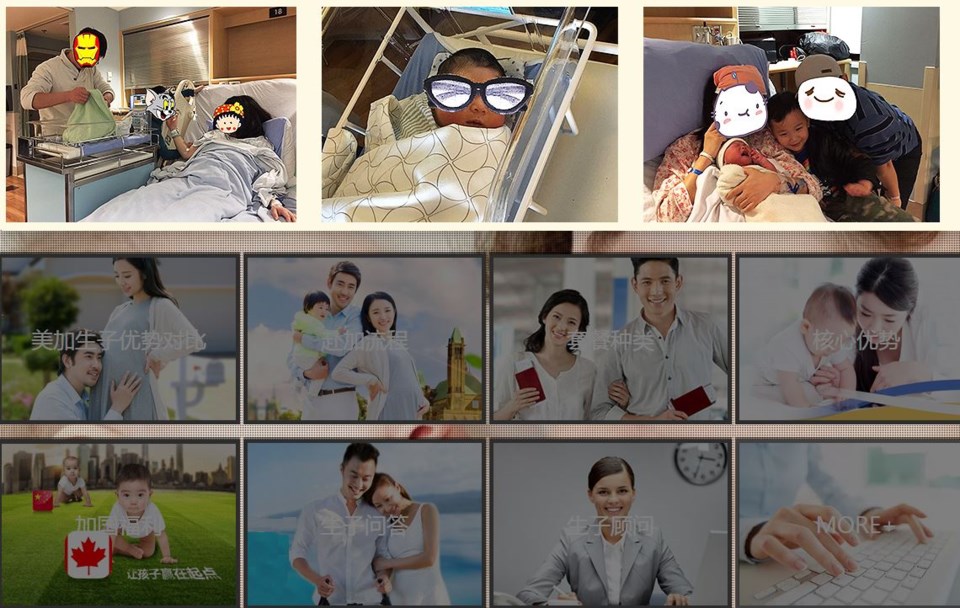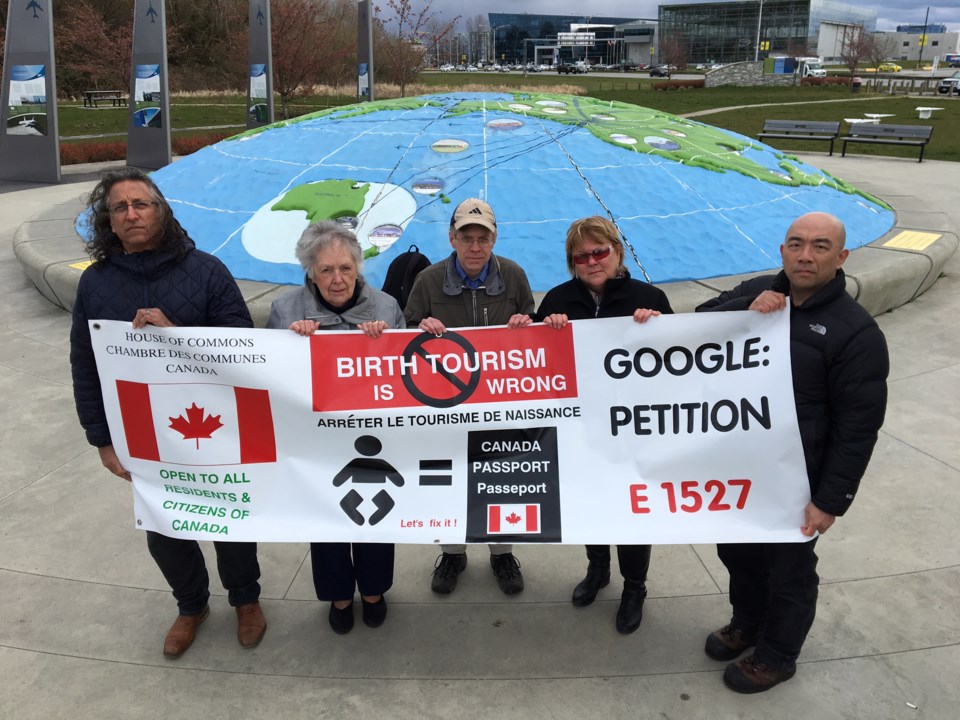A continued rise in non-residents arriving at Richmond Hospital to give birth has led to a second House of Commons petition aimed at denouncing and eliminating birth tourism nationwide — only this time it is sponsored by Liberal MP for Steveston-Richmond East, Joe Peschisolido.
“I think it’s a good petition, a little different from beforehand,” said Peschisolido.
Prior to this new petition, dubbed e-1527 online, an older one, from 2016, was sponsored by Conservative MP for Richmond Centre, Alice Wong, who asked the government to end automatic citizenship rights for being born in Canada, referred to as jus soli.
The Liberals turfed that one, as Peschisolido maintains those rights are a fundamental pillar of freedom in Canada.
Petitioner, Richmond resident and community activist Kerry Starchuk said that while the new petition is “softened” she is hopeful it will at least be discussed in the House, with Liberal government support.
There were 379 births to non-residents in Richmond, according to Vancouver Coastal Health’s 2016-2017 fiscal year records. By comparison, from 2004 to 2010 the hospital helped birth, on average, 18 new Canadians per year from non-resident mothers.
The Peschisolido-sponsored petition closes to signatures July 17 and denounces birth tourism as “an abusive and exploitative practice . . . whereby expectant mothers who are foreign nationals, with no status in Canada, gain automatic citizenship for their children born in Canada.”
It claims birth tourism, which is technically legal, is “debasing the value of Canadian citizenship” and is prone to abusing Canada’s social security programs.
“Underground and unregulated 'for profit' businesses have developed both in Canada and 'countries of origin' to facilitate the practice of 'Birth Tourism'; and the instances of 'Birth Tourism' are increasing in multiple cities across Canada,” the petition notes online.
“I think people are offended by it from an ethical standpoint. In my opinion it is debasing the value of Canadian citizenship,” said petitioner Robert Ingves, an accountant and lifelong Richmondite, who says the practice is tantamount to purchasing a passport.
A core group of six petitioners includes three immigrants who feel the practice is unfair.
“In general, most of the immigrant community despises this kind of practice, but for different reasons people are not outspoken. It’s an unfair practice to all other immigrants who play by the rules,” said scientist Gary Liu, 39, a Vancouver resident, who came to Canada 25 years ago.
Petitioner Serge Biln, 56, said immigrants such as his parents (from India), jump through many hurdles to become Canadian.
However a clear solution to the perceived problem is not made clear in the petition, noted fellow petitioner Ann Merdinyan, an immigrant herself.
Peschisolido said the main intent of the petition is to first denounce the practice and then study the scope of the practice.
“The government should say birth tourism is bad. Let’s quantify it and lets fix it,” said Peschisolido.
Starchuk said denouncing the practice is important as some birth tourism agencies in China are advertising as if Prime Minster Justin Trudeau accepts birth tourism (going so far as to put pictures of him on their website).
These agencies are profiting from parents hoping to have an “anchor baby” who can return to Canada when the child turns 19 and then sponsor their own entry. One agency, Cannetic Travel, shows pictures of births at Richmond Hospital and advertises “free” social services available to Canadians.

Meanwhile, there appears to be a gap in data collection across the country. For instance, In 2014 Statistics Canada reported there were only 82 births where the mother’s “usual place of residence” was outside of Canada. But in Richmond alone, in 2014, there were an estimated 200 births by non-resident mothers. A Statistics Canada spokesperson said it obtains data from B.C. Vital Statistics, which is supposed to collect the data from regional health authorities.
After obtaining data, the petition claims the government would “expeditiously implement concrete measures to reduce and eliminate this practice.”
It’s a matter that has broad support in Parliament, including from NDP immigration critic Jenny Kwan, who told the News, via email, she has requested the government start to collect data on birth tourism. Kwan also said ending jus soli rights is not the solution as “I do not believe we can start to pick and choose amongst who born in Canada is deserving to be a Canadian.”
Vancouver-based immigration lawyer and policy analyst Richard Kurland remains cold to the idea that birth tourism is a significant problem in Canada. Still, he denounces the practice and welcomes a study. But he wants government to differentiate motives by non-resident mothers, who could be on work and study permits.
“We have increased the number of non-residents on study permits in Canada exponentially. When you invite young women to come study in Canada, guess what? They have babies.
“Ask for the number of mothers giving birth less than 2-3 months from arriving and who depart after giving birth. That’s birth tourism. ‘Non-residents’ or ‘temporary residents’ — that doesn’t cut it,” said Kurland.
Kurland said he has his doubts about the theories of abuse to the system, considering it appears to be wealthy Chinese nationals using these agencies in B.C.
“If you’re that wealthy, you won’t come here to Canada at age 18 or 19 and hang out on welfare. Until that happens this is speculation,” said Kurland, who suggested Peschisolido is “channeling” an emotional issue in the community for political purposes.
Kurland said he agrees with Peschisolido stating that “extreme situations make bad law,” which can result in unintended consequences.
But Starchuk said reports in Chinese media that the industry is about to explode means action needs to be taken sooner rather than later.
Nurses at the hospital have expressed significant concerns about the practice.
As of 2016, the hospital asks non-residents to pay a $7,500 deposit for a regular birth and $13,000 for a C-section birth. This is on top of a growing caregiver (unregulated, unlicensed doolas) industry that costs thousands per month for pre and post natal care.
In Vancouver, B.C. Women’s Hospital officials bar foreigners from registering to give birth at their hospital. Meanwhile Richmond now has a registration process open for foreigners.
Fees are set annually by the Ministry of Health on a cost-recovery basis. According to a Ministry spokesperson, such fees do not account for things such as the capital costs to build new hospitals (Richmond needs a new acute care tower) or the countless hours public officials and communities have put in over the decades to build a safe and regulated health care system.



